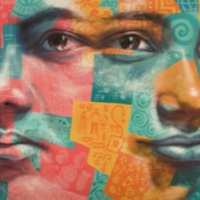
My family in Nigeria were very poor. When I was 15 years old a lady came from abroad, met my father and said why are you living like this? Where I come from is very good. I can take your daughter and it will be better for you because she will be able to send money back home to you. She will have a better life and I will send her to school. He then decided that I should go with this lady. The lady they processed all the papers necessary for my travel and I travelled with her abroad. On arrival she did not fulfil any of the promises she made to my father. Instead she kept me in the house to do all the housework. She also started bringing men to the house to sleep with me for money. Men used to come to the house 3 to 4 times in a week, and each time I used to sleep with between 2 and 3 men. When I didn’t do what she wanted me to do she would beat me up. When I asked her, this is not what she promised me, she said, Is this not aboard? Do you think I pluck money from trees? I brought you here to work. Can you pay back all the money I spent to bring you here?’
Narrative courtesy of AFRUCA (Africans Unite against Child Abuse). AFRUCA is registered charity that advocates for the rights and welfare of African children in the UK. It has developed out of African communities in the UK as a response to their realisation of the problems that African parents and their children face, along with the gaps that exist within the protection system for African children in the country.









